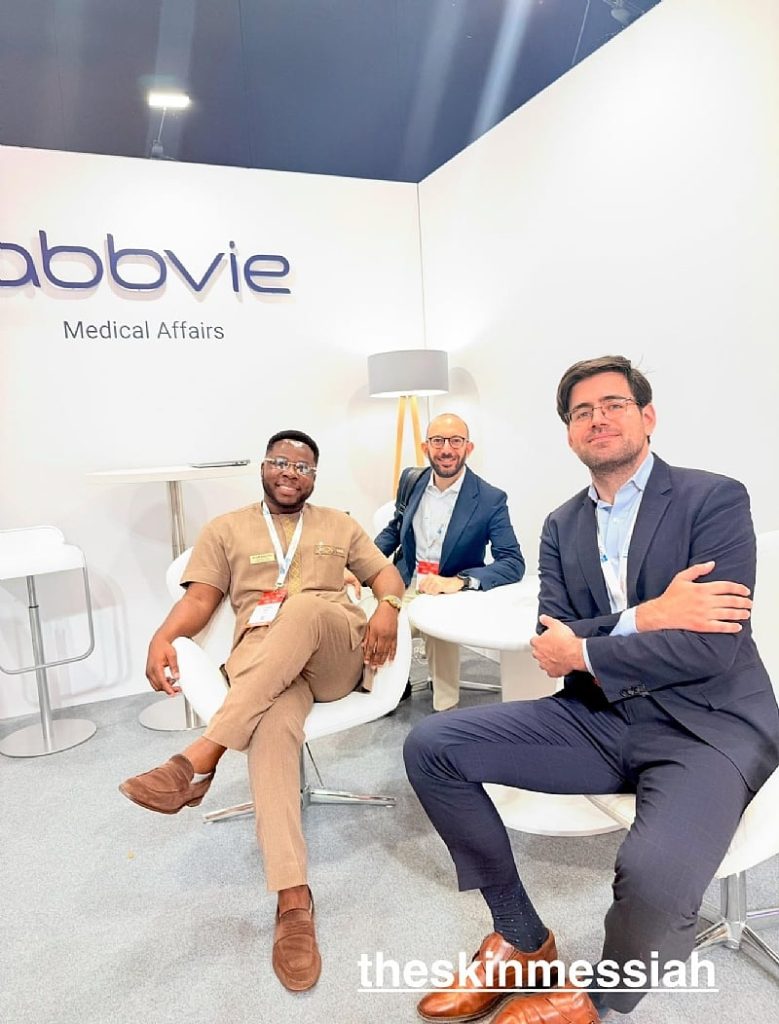The intricate relationship between psychological stress and skin health has long been established by scientific research, yet its practical implications in dermatological care often remain overlooked. Dr. Kofi Ansah Brifo, a member of the International Society of Dermatology (ISD) and Resident Dermatologist at Osu Rabito Clinic, has emphasized this crucial connection, advocating for a more holistic and integrative approach to skin treatment in Ghana. He highlights how stress triggers the hypothalamic-pituitary-adrenal (HPA) axis, leading to the release of cortisol and pro-inflammatory mediators. These substances not only compromise the skin’s protective barrier but also disrupt the immune system and hinder the healing process, thereby exacerbating existing skin conditions. Dr. Brifo observes that in Ghana, individuals with psoriasis often experience worsening symptoms during periods of heightened stress, such as job loss, relationship breakdowns, or academic pressure. Similarly, eczema flare-ups are more common in children during exam periods or parental conflicts, and acne, often wrongly dismissed as a cosmetic issue, exhibits clear links to psychological stress in both teenagers and adults. These observations underscore the need for a paradigm shift in dermatological practices to incorporate stress management as a key component of effective treatment.
Dr. Brifo’s insights stem from his participation in the XIV International Congress of Dermatologists (ICD 2025) held in Rome, Italy. The congress, themed “The Roads of Dermatology,” brought together global experts to explore the future of dermatological care and its evolving practices. Dr. Brifo’s presentation, titled “Healing Skin, Easing Minds: Why Managing Stress is Critical for Ghana’s Skin Health,” emphasized the profound impact of emotional well-being on skin conditions. He pointed out that stress-induced skin problems lead to increased clinic visits, work absenteeism, higher medication costs, and a diminished quality of life. Currently, treatment strategies in Ghana primarily focus on topical and oral medications, neglecting the vital mind-skin connection. This narrow approach often fails to address the root cause of the problem, leading to recurring flare-ups and a cycle of frustration for both patients and healthcare providers. Dr. Brifo therefore calls for a more comprehensive strategy that integrates stress management techniques into conventional dermatological practices.
Dr. Brifo’s proposed integrative approach involves incorporating non-pharmacological interventions alongside traditional medical treatments. This includes establishing dedicated stress management clinics within dermatology departments, community sensitization efforts to raise awareness about the mind-skin connection, and school-based programs promoting mental well-being alongside physical health. He recommends referrals to trained therapists or clinical psychologists within dermatology clinics, advocating for the use of evidence-based techniques like relaxation therapy, cognitive behavioral therapy (CBT), and guided meditation. These interventions have proven effective in reducing eczema severity and itch perception in psoriasis, demonstrating the potential of psychological interventions to improve dermatological outcomes. By addressing the underlying psychological stress, these therapies can help break the cycle of stress-induced flare-ups and enhance the effectiveness of conventional treatments.
Furthermore, Dr. Brifo emphasizes the importance of public health campaigns focused on stress awareness, emotional resilience, and skin health. He envisions these campaigns becoming regular features in Ghana’s national media landscape, educating the public about the intricate link between stress and skin conditions. Introducing skin and stress education in secondary schools, particularly where adolescent acne and eczema are prevalent, can empower young people with the knowledge and skills to manage stress and improve their skin health. Early intervention and education can help prevent chronic skin issues and promote long-term well-being. This proactive approach can potentially reduce the burden of skin diseases in the future and improve the overall quality of life for individuals affected by these conditions.
As the founder of the Skin Messiah Foundation, an organization dedicated to promoting holistic dermatological care in West Africa, Dr. Brifo also encourages the integration of pharmacological innovations with natural therapies. He highlights the potential of phytopharmaceutical products like Pain Relief by Herblot, which combines natural anti-inflammatory and adaptogenic ingredients to relieve both physical pain and mental tension. While not a cure for chronic skin conditions, incorporating such products as adjunct therapy can enhance patient well-being and potentially reduce flare-ups indirectly by addressing the stress component. This integrative approach acknowledges the potential benefits of both conventional medicine and natural therapies, offering a more comprehensive and personalized treatment plan.
In conclusion, Dr. Brifo urges Ghana to prioritize skin health through a multidimensional strategy that extends beyond mere medical prescriptions. He envisions a future where dermatological care encompasses not only creams and medications but also care, compassion, and comprehensive stress relief. This holistic approach acknowledges the intricate interplay between the mind and the skin, recognizing that true healing requires addressing both the physical and psychological aspects of skin conditions. By integrating stress management techniques, public health campaigns, and a more compassionate approach to patient care, Ghana can pave the way for a more effective and holistic approach to dermatological health, ultimately improving the lives of those affected by skin diseases. This paradigm shift in dermatological practice has the potential to transform the way skin conditions are perceived and treated, leading to better outcomes and a higher quality of life for patients.














